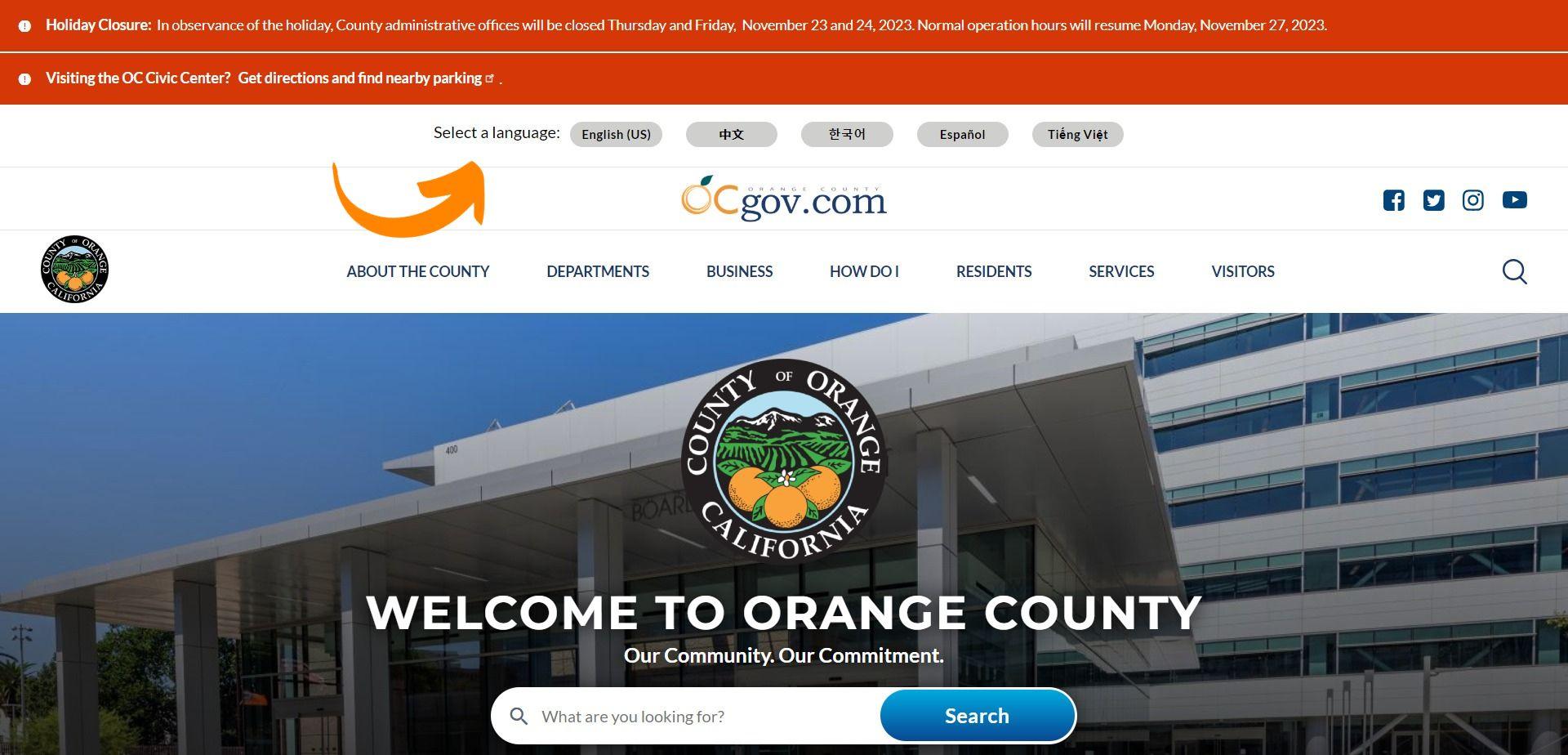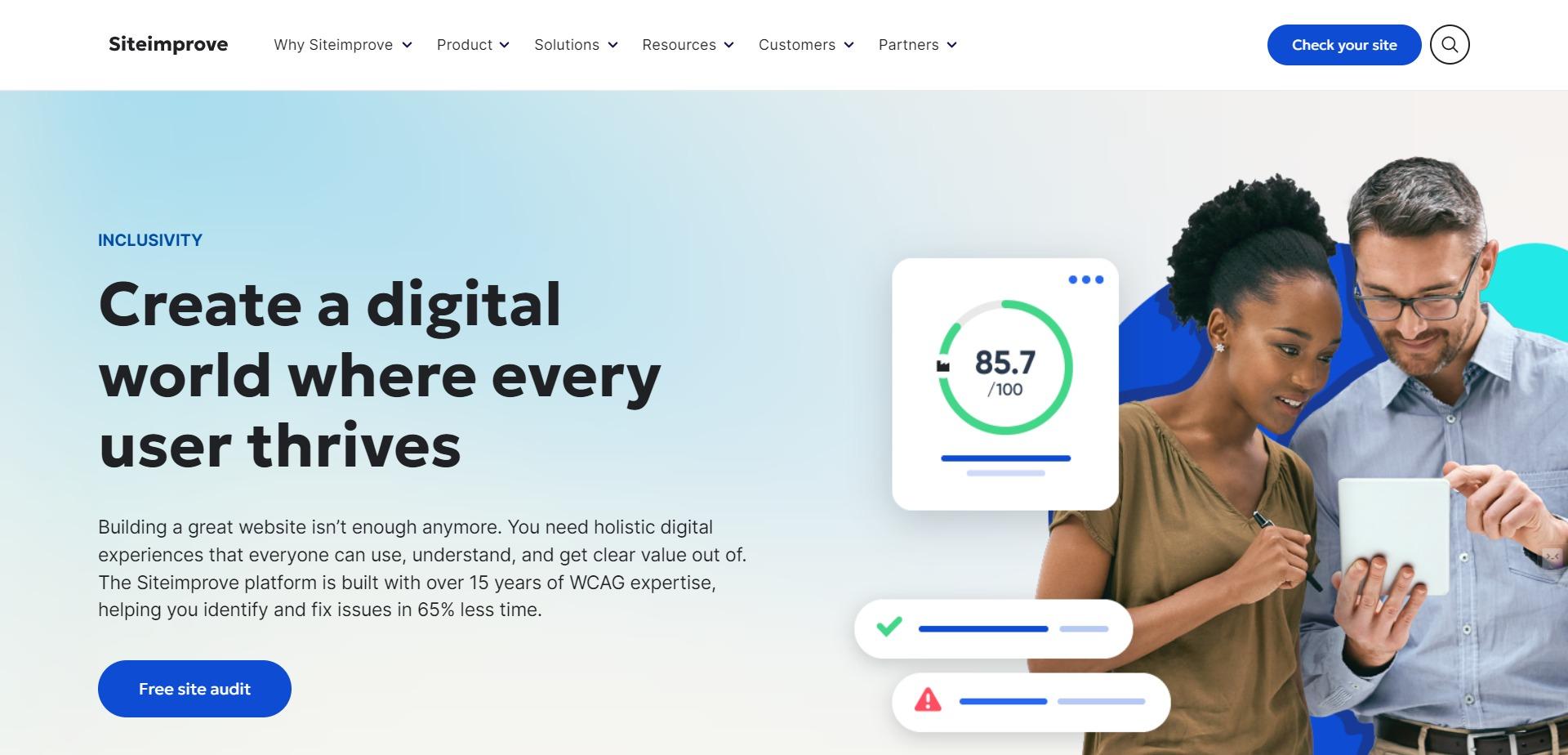🎤 WTSFest Philadelphia up next on October 7th
🎟️ Tickets also on sale for Melbourne, London, & Portland
🎤 WTSFest Philadelphia up next on October 7th
🎟️ Tickets also on sale for Melbourne, London, & Portland

Author: Veniz Maja V Guzman
Last updated: 06/03/2024

This article is intended to serve as a guide for SEOs working in, or with government agencies. Government agencies have very different goals and priorities than commercial businesses; and our approach and focus as SEOs, needs to reflect these differences.
This article will cover:
By the end of this piece, you will not only grasp the major differences between SEO for governmental versus commercial business clients, but also gain practical insights into enhancing your strategy, communication, and analytical skills.
This knowledge will empower you to effectively meet your government clients' unique needs, ensuring that the SEO solutions you provide are not just compliant, but also impactful in serving the interests of the general public.
There are five key areas of difference when it comes to SEO for government websites vs business websites:
The overall objectives of government agencies are very different to that of businesses, and as such, the strategies and approaches we recommend need to reflect these differences.
For most businesses, the key goal is to drive sales, (or generate leads), and increase brand visibility with a view to boosting revenue and expanding market share. This often translates into targeting specific customer demographics, creating sales-driven content, and focusing on metrics like conversion rates and assisted conversions.
SEO for businesses typically involves things like identifying appropriate keywords to target, competitive analysis, and a strong emphasis on tracking the customer journey and purchasing behavior.
The goals for Government websites are typically centered on quickly disseminating information, making public services as visible as possible, and ensuring accessibility to a broad audience.
Unlike businesses that focus on a defined customer base, government websites need to cater to a diverse population with varied needs, requiring a more inclusive approach. For example, a local government like Orange County, California, would need language options for their website to reflect the diversity of their constituents.

Content strategy for government websites prioritizes clarity and accuracy – the aim here is to provide easy access to factual information. Press releases for past and ongoing initiatives are common, as are pages with reasonably low levels of content e.g. just opening hours, contact numbers, etc.
Business websites don’t necessarily operate in quite the same way. For example, we often write long-form content such as articles and whitepapers to give solutions and show thought leadership. Since the goal is to ultimately drive revenue, we need our target audience to see the business as the authority in the market.
What does success look like for a governmental website? Rather than sales or leads, we typically consider things like fewer phone calls, increased user engagement, and effective information dissemination as measures of success. Most government SEO strategies also emphasize compliance with ADA Section 508, privacy laws, and information relevance too.
As such, the SEO strategies we devise for government websites need to account for these fundamental differences. Overall, SEO for governmental websites needs to be approached from a different angle. At the end of the day, it’s not about generating revenue — it’s about ensuring citizens are able to access the information and services they need with as few barriers as possible.
In my experience, the primary goals of governmental organizations do vary; and it’s really important that I have a clear understanding of what those goals are right from the start of a project. Here are some questions I like to ask:
It’s really important to take the time to educate these clients. The levels of SEO experience in governmental organizations often vary wildly, so explaining technical SEO concepts in a way that is accessible and easy to understand is crucial. Additionally, as many of my points of contact don’t have a deep understanding of SEO, breaking down complex strategies into digestible, easily-actionable items is beneficial.
As with commercial clients, it's crucial to establish clear and consistent communication channels. Are you using Slack, Gmail, or another app? Do you have a ticketing system or a task tracker they can check for progress? Clear and consistent communication requires regular updates, ensuring that both parties are aligned on goals and expectations.
For example, if you have a task pending, update clearly and consistently. And if you’re giving instructions, make sure to include things like screenshots. I use the Tango Chrome extension for this — I create the guide in Tango then copy-paste it into the ticketing or communication tool we use.
Being adaptable and patient is key. Government projects often have much lengthier approval processes compared to private sector projects. As SEO professionals, we need to be flexible in our approach and be able to communicate if a task is urgent or not.
Let’s imagine you’ve already asked your questions, got access to their Google Analytics (or whatever analytics tool they prefer, I’ve found that some government agencies have privacy concerns with GA4 despite the EU-U.S. Data Privacy Framework), and Google Search Console accounts.
It’s likely that your first step will be a full crawl of their website using a tool like Screaming Frog or Sitebulb. I would also recommend checking their analytics and GSC accounts for additional information. And if you have access to an accessibility checker such as Siteimprove, that would be useful as well.

To learn what to prioritize in your audit results, you need to go back to the questions that you asked beforehand. These are some of the issues that I typically look into:
By ensuring my focus lies in these types of areas, I can ensure that my efforts are aligned with what my client needs, ensuring a more efficient and impactful SEO strategy.
Next, it’s important to make sure that we’re tracking the right things in order to see if our work has been effective.
These are the data points that I typically track (feel free to choose whichever are most appropriate for your client’s goals):
In addition to these data points, it's important to regularly review and adjust your analytics strategy depending on your client’s needs.
This may involve setting up custom tracking for specific user actions or integrating additional tools for more in-depth analysis, such as a heat map tracker to see how users are engaging with the site or a keyword alert tool to quickly find online mentions.
By carefully monitoring these analytics points, we can make informed decisions to continuously improve the website's performance and help our clients better serve their constituents.
As SEO professionals working with government clients, we face unique challenges and opportunities. Aside from working with a client whose goals do not include commercial goals like we’re generally used to, there’s also the matter of emphasizing compliance, accessibility, and public service in our SEO strategies.
Effective communication with government clients is paramount, as is prioritizing audit findings to align with their objectives.
Finally, tracking the right metrics helps us check if our SEO efforts are effectively meeting the needs of the public, and lets us pivot quickly if we see otherwise.
SEO for government websites, just like SEO for any specific sector, is a dynamic area with evolving standards and public expectations. I suggest keeping updated with the latest accessibility and security standards, in addition to SEO updates, in order to provide your clients with the most effective strategies.